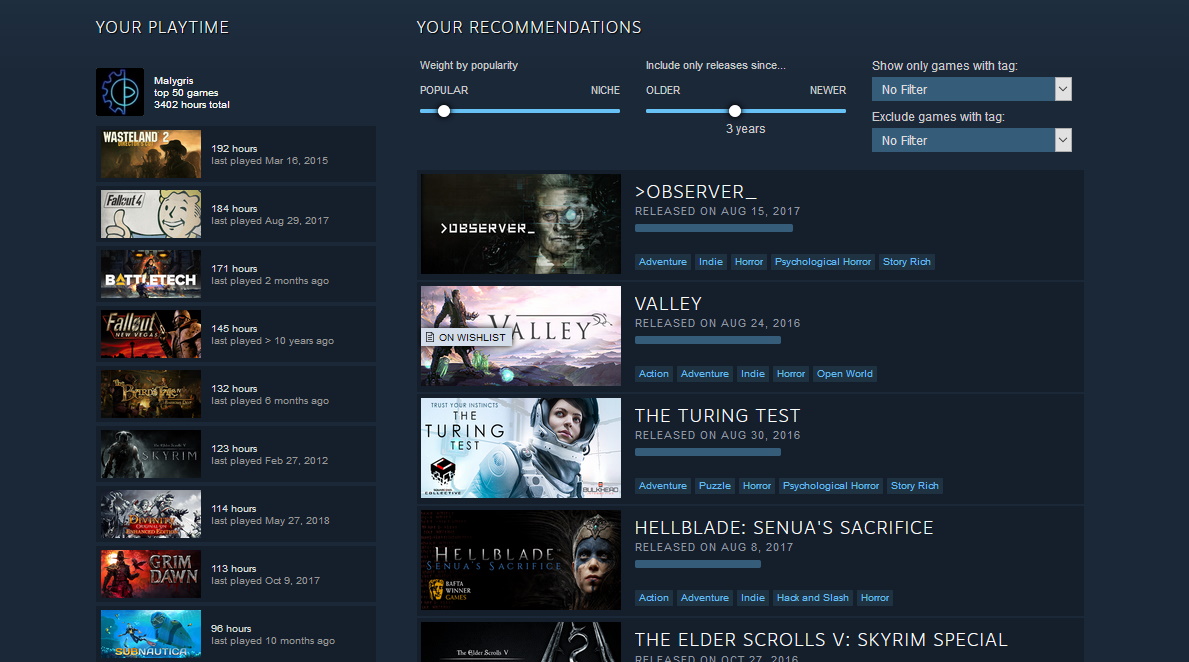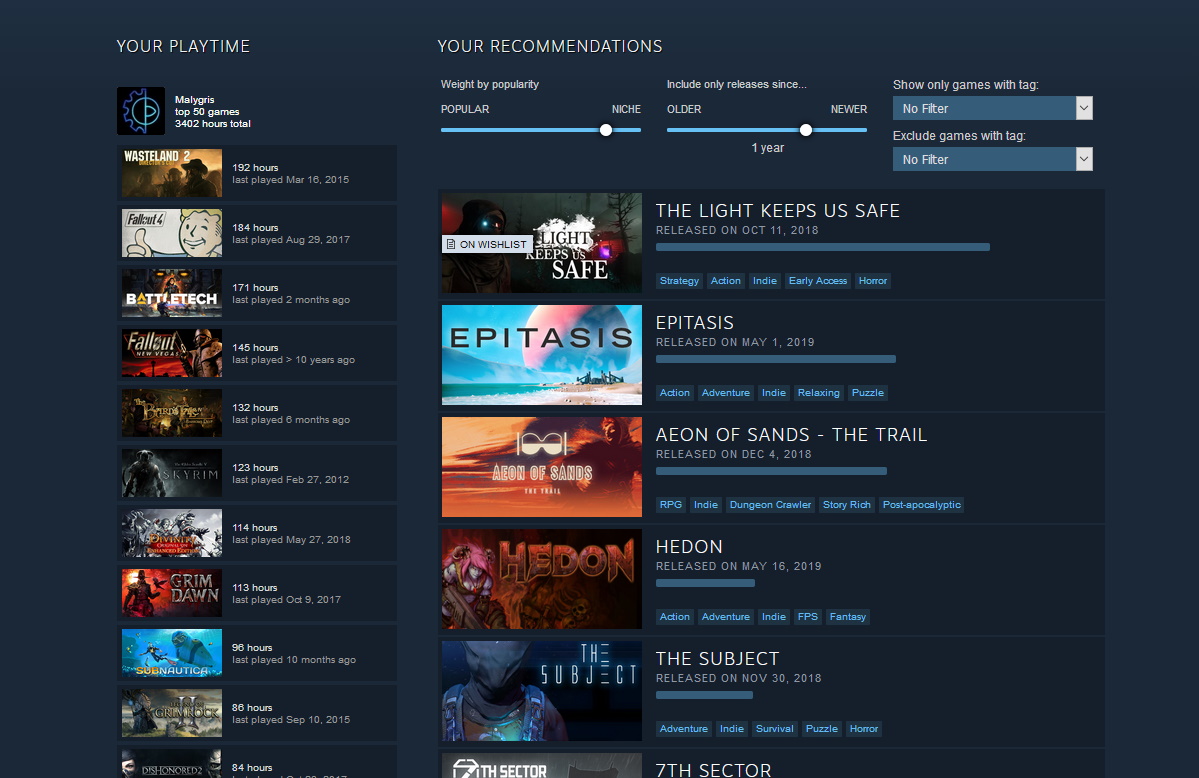Steam's new 'Interactive Recommender' uses machine learning, not tags or reviews, to tell you what to play
The new system uses a 'neural network model' to learn what you like, and give you popular or niche recommendations.

Valve has unveiled a new experimental feature on Steam called the Interactive Recommender that it hopes will, once the kinks are worked out, give players better, more personalized recommendations about games they might like. Rather than relying on tags, the system is built on a "neural network model" based on your playtime history and "other salient data," and updates its recommendations in real-time through adjustable preferences for game age and "popularity" so you can tune its suggestions on the fly.
"We train the model based on data from many millions of Steam users and many billions of play sessions, giving us robust results that capture the nuances of different play patterns and covers our catalog. The model is parameterized so that we can restrict output to games released within a specified time-window, and can be adjusted to prefer games [with] a higher or lower underlying popularity," Valve explained in a blog post.
"These parameters are exposed to the user, allowing you to select whether to see only recent releases in the results, or go all the way back to include games released a decade ago. Similarly, you can choose whether to see mainstream hits, or deep cuts from the catalog. Regardless of the settings of the sliders, the results will always be personalized and relevant to the individual user."
Interestingly, Valve doesn't give the model explicit information about games, but instead lets the machine learn about them during the initial training process. That includes things like tags and review scores: Users can filter their recommendation results with tags, but tags are not part of the underlying model.
"In fact, the only information about a game that gets explicitly fed into the process is the release date, enabling us to do time-windowing for the release-date slider," Valve wrote.
The net result is a recommendations page that varies greatly depending on how you tune it. If I go all-in for "popular" new games, for instance, my top three results are Enderal: Forgotten Stories, Rage 2, and Blood: Fresh Supply; moving the release window slider to the opposite side of the scale (which goes back ten years), I get Portal 2, Rise of the Tomb Raider, and the 2013 Tomb Raider reboot. Moving the popularity slider to "Niche" mixes it up even further, with lesser-known games like Hedon, Epitasis, Xing: The Land Beyond, and I Can't Escape: Darkness.

Valve said that one of the big advantages of this system is that it eliminates the incentive for developers and publishers to optimize their games for "The Algorithm" that conventional discovery models rely on. "We designed the recommender to be driven by what players do, not by extrinsic elements like tags or reviews," Valve wrote. "The best way for a developer to optimize for this model is to make a game that people enjoy playing. While it's important to supply users with useful information about your game on its store page, you shouldn't agonize about whether tags or other metadata will affect how a recommendations model sees your game."
The biggest gaming news, reviews and hardware deals
Keep up to date with the most important stories and the best deals, as picked by the PC Gamer team.
For now, Valve is keeping the Interactive Recommender separate from its existing recommendation model, which will enable it to test the system with early adopters, collect usage data, and train the machine without annoying people who don't like their stuff being messed with. If it works out (and I suspect it will), it'll be rolled out more widely, but Valve promised to let everyone know it's coming first.
"We view this new Interactive Recommender as one discovery element among many, and look forward to introducing more ways to connect customers with interesting content and developers," Valve wrote. A discussion group for the new Interactive Recommender is available here.
Valve is also conducting a separate Steam Labs experiment with something called "microtrailers." Read all about it.

Andy has been gaming on PCs from the very beginning, starting as a youngster with text adventures and primitive action games on a cassette-based TRS80. From there he graduated to the glory days of Sierra Online adventures and Microprose sims, ran a local BBS, learned how to build PCs, and developed a longstanding love of RPGs, immersive sims, and shooters. He began writing videogame news in 2007 for The Escapist and somehow managed to avoid getting fired until 2014, when he joined the storied ranks of PC Gamer. He covers all aspects of the industry, from new game announcements and patch notes to legal disputes, Twitch beefs, esports, and Henry Cavill. Lots of Henry Cavill.

